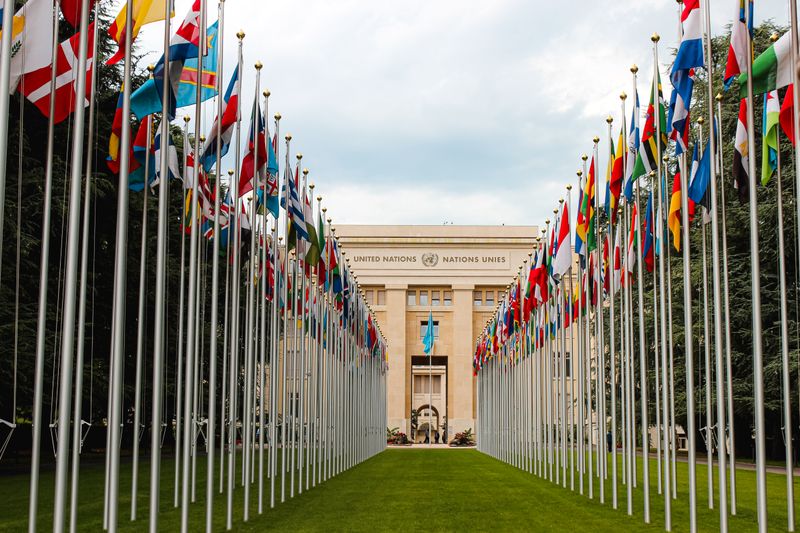Taiwan Probes Firms Suspected of Selling Chip Equipment to China‘s Huawei Despite US Sanctions
Taiwan authorities are currently investigating four Taiwan-based companies for their alleged involvement in helping China‘s Huawei Technologies to build semiconductor facilities. The investigation will determine whether these companies violated regulations that prohibit the sale of sensitive technologies and equipment to China. The Ministry of Economic Affairs has summoned the semiconductor and factory services suppliers for questioning, based on a report by Bloomberg that claimed they were working with Huawei in constructing a network of computer chip plants.
The investigation will also examine whether these companies exported any sensitive technologies or products with military applications, which are included in Taiwan‘s list of Strategic High-Tech Commodities. The companies in question, namely semiconductor material reseller Topco Scientific Co., cleanroom constructor L&K Engineering Co., construction and design firm United Integrated Services Co., and chemical supply system provider Cica-Huntek Chemical Technology Taiwan Co., are suspected of supplying equipment or services to Huawei.
The Potential Violations and Consequences
If found guilty, these companies could face fines of up to 25 million Taiwan dollars ($777,665) for violating regulations. The provision of cleanrooms and other high-tech equipment and services is crucial for the delicate process of manufacturing computer chips, making it imperative to investigate whether there were any breaches in supplying such equipment to Huawei despite the US sanctions against the Chinese tech giant.
National Security Concerns
The investigation will also serve to safeguard national security interests, as Taiwan is a key player in the global semiconductor supply chain. The country has long been at the forefront of chip manufacturing, and ensuring strict control over the export of sensitive technologies is crucial to maintain a competitive advantage and prevent any potential compromise of national security.
The Role of US Sanctions
The issue of selling chip equipment to Huawei despite US sanctions raises questions about the effectiveness of these sanctions and the ability of companies to bypass them. Huawei was placed on the US Commerce Department’s entity list in 2019, with the US government citing concerns over national security and Chinese spying. The entity list prohibits companies from doing business with Huawei unless they obtain a license to do so. However, the investigation into these Taiwanese companies shows that there may be ways for companies to circumvent these restrictions, potentially undermining the intent behind the sanctions.
Editorial: Striking a Balance Between Trade and Security
Supply chain security and the control of sensitive technologies are complex issues that require a delicate balancing act between trade and national security. On one hand, maintaining control over these technologies is crucial to protect national interests and prevent potential security risks. On the other hand, overly restrictive regulations can stifle innovation, disrupt global supply chains, and harm international trade.
It is important for governments and industry stakeholders to collaborate and establish clear guidelines and regulations that strike this necessary balance. Close monitoring and enforcement of export regulations, as well as international cooperation and information sharing, are key to preventing the unauthorized transfer of sensitive technologies and equipment.
Advice: Strengthening Supply Chain Security
To enhance supply chain security and mitigate the risk of unauthorized technology transfer, companies need to implement robust internal controls and due diligence processes. This includes conducting thorough background checks on potential customers and partners, as well as regularly reviewing and updating risk assessment procedures.
Additionally, governments and industry associations should invest in education and awareness programs to ensure that companies are aware of their obligations and the potential risks associated with unauthorized technology transfer. By fostering a culture of compliance and responsible trade practices, stakeholders can better protect national security interests without impeding global trade and innovation.

<< photo by Mathias Reding >>
The image is for illustrative purposes only and does not depict the actual situation.
You might want to read !
- The Rise of DMARC: Leveling the Playing Field for Online Security
- Ransomware Attacks: How MGM Grand Defies the $100M Loss
- D.C. Voter Records Exposed: Online Sale Sparks Concerns of Cybercrime Threats
- The Invasion from Within: Unmasking China’s Linux Backdoor Espionage Campaign
- Cyber Warfare Escalates: Unveiling Operation Rusty Flag’s Devastating Blow to Azerbaijan
- China’s Aggressive Cyber Warfare Tactics: A Strategic Move Towards Kinetic Warfare Dominance
- 23andMe Cyberbreach: Unveiling the Potential Risks and Rewards of Exposed DNA Data
- Israeli President’s Telegram Account Hacked: Uncovering the Operation of a Suspected Crime Gang
- Google and Yahoo’s DMARC Push: A Wake-Up Call for Companies
- Navigating Unforeseen Challenges: Building Resilience Through Proactive Strategies
- Understanding the Threat: Microsoft’s Report on Cybercrime and State-Sponsored Cyber Operations
- The Urgent Call for Action: Identifying the Top 10 Cybersecurity Misconfigurations Threatening Organizations
- The Rise of SaaS and Cloud Computing: Unveiling the Scattered Spider’s Lucrative Transformation
- Unraveling the Enigma: Investigating the Claims of a Suspicious Ransomware Group
- Catalyte and Google Partner to Create New Cybersecurity Apprenticeship Pathways




